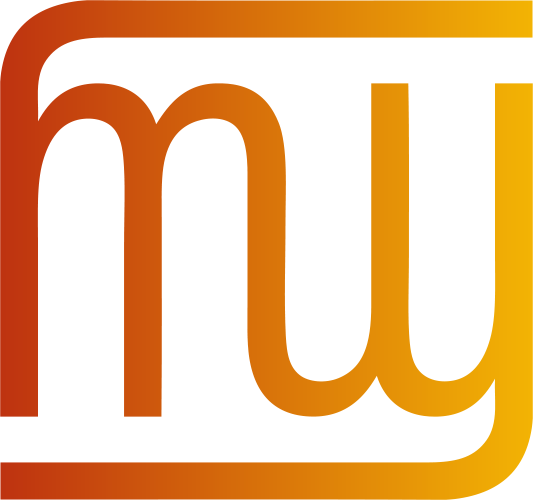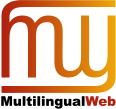 The W3C Internationalization (I18n) Activity works with W3C working groups and liaises with other organizations to ensure Web technologies work for everyone, regardless of their language, script, or culture.
The W3C Internationalization (I18n) Activity works with W3C working groups and liaises with other organizations to ensure Web technologies work for everyone, regardless of their language, script, or culture.
From this page you can find articles and other resources about Web internationalization, and information about the groups that make up the Activity.
Read also about opportunities to participate and fund work via the new Sponsorship Program.
What the W3C Internationalization Activity does
Selected quick links
Selected quick links
Selected quick links
New translations into German
Darstellungsvermögen (Display capabilities)
Datum und Uhrzeit (Dates and Time)
Datumsformate (Date formats)
These articles were translated into German thanks to Steffen Herkert, Nico Kutscherauer, and Tobias Klevenz (data2type GmbH).
New translations into Russian and Ukrainian
Ukrainian:
byte-order mark (BOM) в HTML (The byte-order mark (BOM) in HTML)
Нормалізація в HTML і CSS (Normalization in HTML and CSS)
Символи або розмітка? (Characters or markup?)
Заміна кодування (X)HTML сторінки на UTF-8 (Changing (X)HTML page encoding to UTF-8)
Використання екранованих символів в розмітці і CSS (Using character escapes in markup and CSS)
Russian:
byte-order mark (BOM) в HTML (The byte-order mark (BOM) in HTML)
Нормализация в HTML и CSS (Normalization in HTML and CSS)
Символы или разметка? (Characters or markup?)
Замена кодировки (X)HTML страницы на UTF-8 (Changing (X)HTML page encoding to UTF-8)
Использование экранированных символов в разметке и CSS (Using character escapes in markup and CSS)
These articles were translated thanks to Alexandr Shlapak.
Updated article: Setting language preferences in a browser
The whole article was largely rewritten. The list of browsers was reduced to just major browsers, but additional information on these was provided and the information was brought up to date. Further additions include a comment on IP-based negotiation, and a new section on levels of detail in language tags.
Translators should consider retranslating the whole article.
New translations into Romanian
Notiuni de baza despre site-ul W3C I18n (Getting Started with the W3C I18n site)
Limba pe Web (Language on the Web)
These articles were translated into Romanian thanks to Echipa Traduceri-W3.
New translations into German
Umgang mit Zeichencodierungen in HTML und CSS (Handling character encodings in HTML and CSS)
Zeichencodierungen: grundlegende Konzepte (Character encodings: Essential concepts)
Eine Zeichencodierung wählen und anwenden (Choosing & applying a character encoding)
Das BOM (byte-order mark) in HTML (The byte-order mark (BOM) in HTML)
Normalisierung in HTML und CSS (Normalization in HTML and CSS)
These articles were translated into German thanks to Gunnar Bittersmann.
New translations into Russian and Ukrainian
Ukrainian:
Вибір і застосування кодування (Choosing & applying a character encoding)
Призначення кодування символів в HTML (Declaring character encodings in HTML)
Призначення кодування символів в CSS (Declaring character encodings in CSS)
Кодування символів: Основні поняття (Character encodings: Essential concepts)
Russian:
Выбор и применение кодирования (Choosing & applying a character encoding)
Назначение кодировки символов в HTML (Declaring character encodings in HTML)
Назначение кодировки символов в CSS (Declaring character encodings in CSS)
Кодирование символов: Основные понятия (Character encodings: Essential concepts)
These articles were translated thanks to Alexandr Shlapak.
Don’t forget to register for the W3C MultilingualWeb Workshop in Pisa

If you are planning to attend the W3C MultilingualWeb Workshop in Pisa, Italy on 4-5 April 2011 and you haven’t yet registered, please do so as soon as possible to secure a place. The workshop is free and open to the public.
The program is packed with interesting speakers and we are looking forward to another great workshop, with plenty of excellent networking opportunities.
If you have yet to book a hotel, don’t forget to check out the list of hotels with specially negotiated prices.
For more information see the Call for Participation.
The MultilingualWeb project, funded by the European Commission and coordinated by the W3C, is looking at best practices and standards related to all aspects of creating, localizing and deploying the multilingual Web. The project will raise visibility of what’s available, identify gaps, and provide networking opportunities via a series of four events, over two years.
8 days left for the Internationalization & Unicode Conference Call for Participation
The Unicode® Consortium will close its call for participation in the 35th Internationalization & Unicode® Conference (IUC 35) on Friday, March 25. If you want to talk at the conference, you should submit your proposal soon.
The Program Committee will notify authors by Wednesday, April 20. Final presentation materials will be required from selected presenters by Wednesday, August 3.
The conference will take place in Santa Clara, Calif., USA; October 17-19, 2011, sponsored by Adobe. The conference is produced by OMG®.
This is the premier conference on technologies and practices for the creation and management of global and multilingual software solutions. This annual event is praised for its excellent technical content, industry-tested recommendations and updates on the latest standards.
New translation into Polish
Obsługa kodowania znaków w HTML i CSS (Handling character encodings in HTML and CSS)
This tutorial was translated into Polish thanks to Bartosz Matusiak.
New translations into Russian and Ukrainian
Ukrainian: Обробка кодування символів в HTML і CSS (Handling character encodings in HTML and CSS)
Russian: Обработка кодирования символов в HTML и CSS (Handling character encodings in HTML and CSS)
These articles were translated thanks to Alexandr Shlapak.